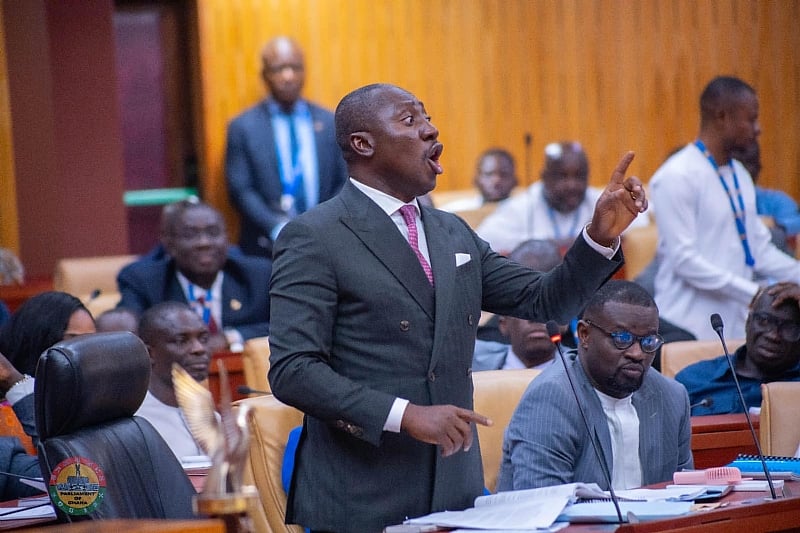The controversy surrounding the construction of the new Bank of Ghana (BoG) headquarters, a project valued at over $250 million, appears to have reached a resolution following a detailed explanation of the project’s costs presented to Parliament by Governor Dr. Johnson Asiama. Minority Leader, Mr. Alexander Afenyo-Markin, expressed satisfaction with the Governor’s transparency, stating that the comprehensive breakdown of the project’s progression and procedures demonstrated commendable leadership. This declaration effectively lays to rest the allegations of irregularities that had previously plagued the project. The Minority Leader’s endorsement signals a shift from the earlier criticism levelled against the project, particularly by the then National Democratic Congress (NDC) Minority Caucus, who had called for the resignation of the former BoG Governor, Dr. Ernest Addison, and his deputies.
The initial controversy stemmed from concerns about the project’s cost, particularly given the prevailing economic challenges facing the nation. Critics questioned the prioritization of such a substantial investment in a new headquarters building while other pressing economic needs remained unaddressed. The exorbitant price tag of over $250 million raised eyebrows and fueled speculation about potential mismanagement or misallocation of funds. The demand for resignations reflected the seriousness of the allegations and the level of public concern surrounding the project’s financial implications.
Governor Asiama’s detailed presentation to Parliament appears to have effectively addressed these concerns. He outlined the various factors contributing to the project’s cost, including essential security enhancements. These additions, such as a dedicated power generation system and a comprehensive recycling system, were not part of the original project scope but were deemed necessary to ensure the long-term functionality and security of the new headquarters. The inclusion of these features, while adding to the overall cost, provides a justification for the cost variations that had previously drawn criticism.
Furthermore, the Governor clarified that the project expanded beyond the initial blueprint to accommodate additional buildings, further contributing to the increased cost. This expansion likely reflects the evolving needs of the Bank of Ghana and its long-term strategic vision. By providing this level of detail, Governor Asiama offered a transparent account of the project’s financial evolution, demonstrating accountability and addressing the concerns raised by the opposition. The Minority Leader’s subsequent endorsement suggests that the Governor’s explanation was deemed satisfactory and that the perceived irregularities have been adequately clarified.
The resolution of this controversy highlights the importance of transparency and accountability in public projects. By providing a comprehensive breakdown of the project’s costs and justifications for the variations, Governor Asiama has effectively addressed the concerns raised by the opposition and the public. This demonstrates a commitment to responsible governance and strengthens public trust in the management of public funds. The initial controversy served as a catalyst for increased scrutiny and ultimately led to a more thorough explanation of the project’s financial aspects.
The construction of the new Bank of Ghana headquarters, while initially contentious, now stands as a testament to the importance of open communication and accountability in public projects. The detailed explanation provided by Governor Asiama has effectively addressed the concerns surrounding the project’s cost, paving the way for its completion without the cloud of suspicion that previously hung over it. This outcome underscores the value of transparency in ensuring public trust and confidence in government institutions and their projects. The new headquarters, once a source of controversy, can now symbolize the Bank of Ghana’s commitment to modernizing its infrastructure and strengthening its capacity to serve the nation’s financial needs.














